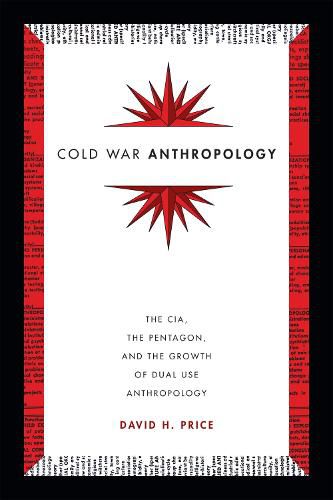Readings Newsletter
Become a Readings Member to make your shopping experience even easier.
Sign in or sign up for free!
You’re not far away from qualifying for FREE standard shipping within Australia
You’ve qualified for FREE standard shipping within Australia
The cart is loading…






In Cold War Anthropology, David H. Price offers a provocative account of the profound influence that the American security state has had on the field of anthropology since the Second World War. Using a wealth of information unearthed in CIA, FBI, and military records, he maps out the intricate connections between academia and the intelligence community and the strategic use of anthropological research to further the goals of the American military complex. The rise of area studies programs, funded both openly and covertly by government agencies, encouraged anthropologists to produce work that had intellectual value within the field while also shaping global counterinsurgency and development programs that furthered America’s Cold War objectives. Ultimately, the moral issues raised by these activities prompted the American Anthropological Association to establish its first ethics code. Price concludes by comparing Cold War-era anthropology to the anthropological expertise deployed by the military in the post-9/11 era.
$9.00 standard shipping within Australia
FREE standard shipping within Australia for orders over $100.00
Express & International shipping calculated at checkout
In Cold War Anthropology, David H. Price offers a provocative account of the profound influence that the American security state has had on the field of anthropology since the Second World War. Using a wealth of information unearthed in CIA, FBI, and military records, he maps out the intricate connections between academia and the intelligence community and the strategic use of anthropological research to further the goals of the American military complex. The rise of area studies programs, funded both openly and covertly by government agencies, encouraged anthropologists to produce work that had intellectual value within the field while also shaping global counterinsurgency and development programs that furthered America’s Cold War objectives. Ultimately, the moral issues raised by these activities prompted the American Anthropological Association to establish its first ethics code. Price concludes by comparing Cold War-era anthropology to the anthropological expertise deployed by the military in the post-9/11 era.